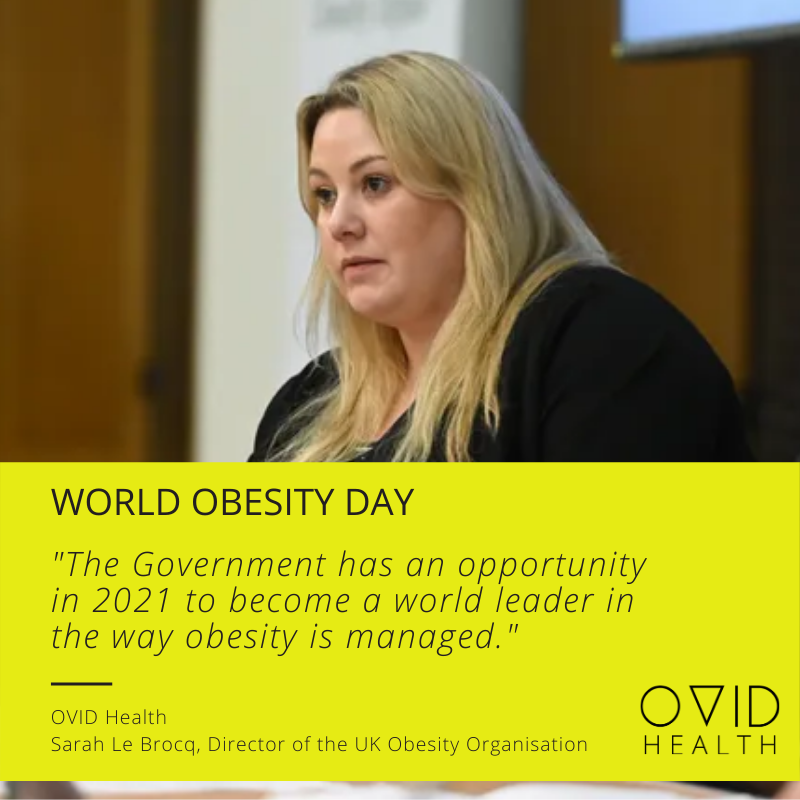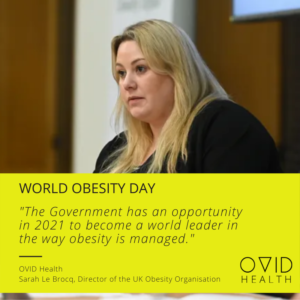
04 Mar World Obesity Day 2021

On World Obesity Day, OVID Health has partnered with Sarah Le Brocq, Director of the UK Obesity Organisation, to explain why 2021 is another important year in obesity policy.
The pandemic has caused significant challenges for people living with many different chronic conditions. But of all of them, obesity rose to the top of the Government’s agenda in 2020, following the link between excess weight and COVID-19 mortality and the Prime Minister’s own illness from the virus.
As we move into 2021, we are expecting more action from the Government to support people to achieve a healthy weight. Alongside a stream of public consultations to encourage healthier choices, policy makers in the Government and NHS have been engaging with key opinion leaders on how to expand access to weight management services.
There are two key opportunities. Firstly, the upcoming NICE weight management guideline update is an opportunity to add flexibility to the NHS’ tiered system of treatment, or as some have been calling for, to abandon it altogether. Secondly, Integrated Care Systems are expected to have obesity included within their primary framework objectives and provide an opportunity to manage obesity in a more holistic way than has previously been possible.
However, good policy making requires a strong patient voice. This has traditionally been difficult in obesity, where advocating for people living with the condition can lead to fierce abuse and stigma. For many years well-intentioned policy to reduce obesity has failed to deliver as the patient voice has been side-lined.
But this barrier is being broken down, and the UK Obesity Organisation this year plans to take a leading role in the influencing and development of obesity policy. “The conversation at a policy level is moving away from ‘eat less and move more’ and towards a mix of prevention, support and treatment,” explains Sarah. “Our work is really about gaining equality for people living with obesity and making sure we have parity of esteem with other chronic conditions. Too often people are unable to access the appropriate support because of stigma and a lack of services. This has to change. We hope that the Government will formally recognise obesity as a disease, an action which would bring a significant change in the way obesity is managed in the UK.”
“This means there is reason to be optimistic, both about the future of policy to reduce obesity but also for the health of the nation. More of a focus on supporting people to manage their weight will bring opportunities for research, investment and innovation. It may also increase our understanding of the condition and tackle the damaging stigma people face.”
The Government has an opportunity in 2021 to become a world leader in the way obesity is managed. Few would have predicted that arch libertarian Boris Johnson would be the one to ban buy one get one free deals, yet he says he will. Changing the way we treat obesity is more likely now a patient voice is leading this charge.